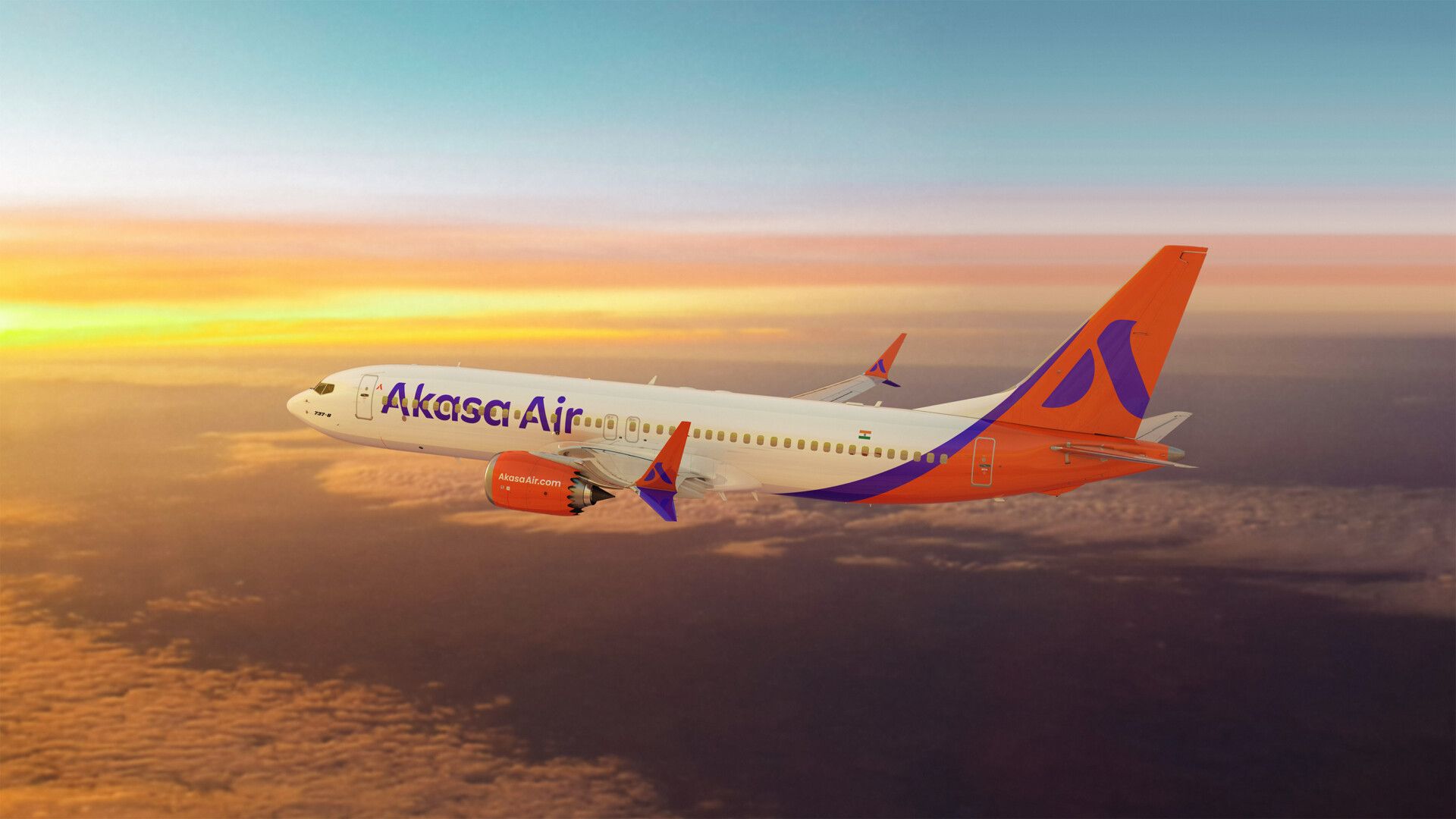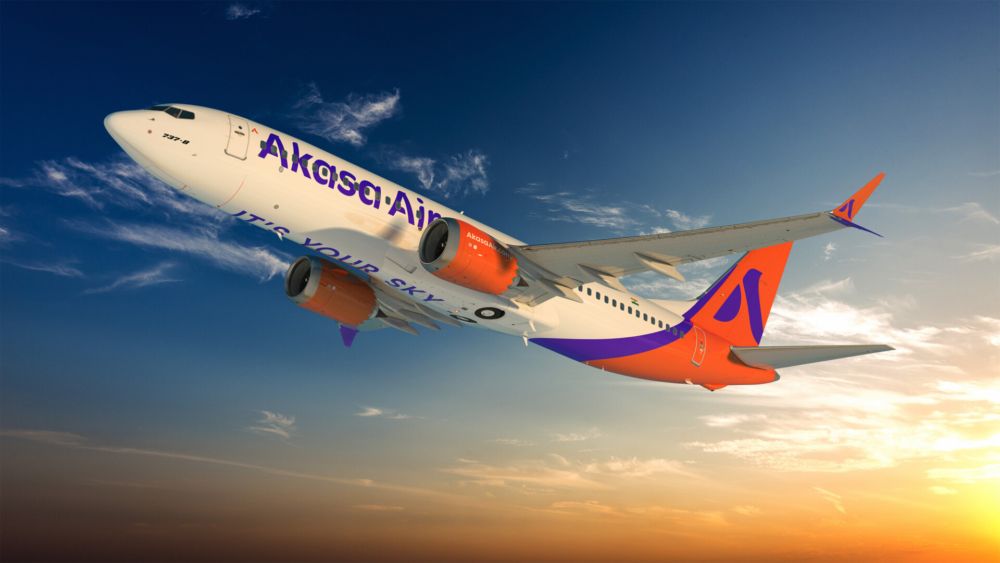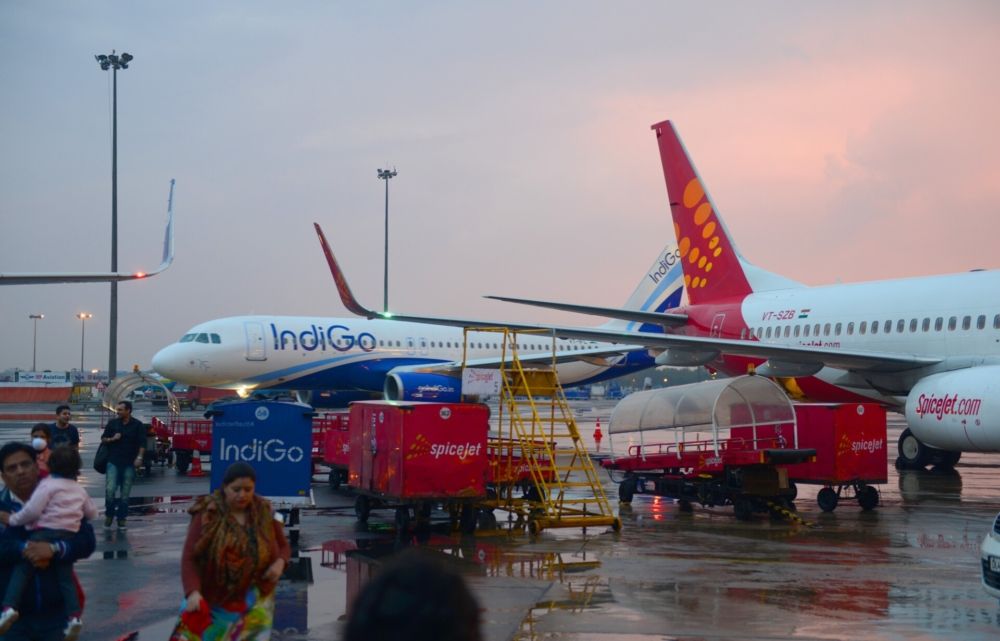India's soon-to-be-launched airline Akasa Air will not be an ultra-low-cost carrier, its CEO Vinay Dube confirmed in an interview on January 11th. The airline still awaits the all-important air operators certificate (AOC) but is believed to be in the last few stages of starting operations in the middle of this year.
Not a ULCC
Rumors had long been circulating in the Indian aviation circles that Akasa Air could be the country's first ultra-low-cost airline. But now, for the first time, we have official clarification on the matter.
In an interview with the Times Group, Akasa's CEO Vinay Dube put to rest the speculation about the business model of the upcoming airline. Crushing all rumors about Akasa being a ULCC, he said,
“We are an LCC. Initially we were incorrectly characterized as a ULCC, but I would say we would be a budget carrier. We will have a single fleet type, a single class of service, and all of the other traits that go with a normal budget carrier. But I would say what we would like to do in addition to that is have a warm and efficient customer service, a very dependable offering to our customers, and of course be very affordable.”
Pretty much in line with other LCCs in the country, the carrier will not have a business class or premium economy and will offer buy-on-board services to its passengers.
Stay informed: Sign up for our daily and weekly aviation news digests.
How will it survive in a crowded market?
In an aviation market with razor-thin margins that many believe is already crowded, how exactly will Akasa create a space for itself? Dube thinks that the growth projected in India's aviation sector is more than enough to accommodate Akasa Air.
Furthermore, he has strong faith in the company's experienced founding team to make sound business decisions from day one, which will play out in the next ten years. This includes getting all the basics right for a head start, such as securing practical aircraft, leasing, and maintenance contracts.
Still, in a market dominated almost 50% by one player, how will Akasa differentiate itself? The airline is likely to focus more on connecting metros with tier-2 cities instead of major trunk routes. It's not yet known which will be Akasa's focus city, but company officials are in talks with various stakeholders such as Delhi, Mumbai, and Bangalore airports, as well as the Airports Authority of India.
On track for summer operations
So far, the third COVID wave has not affected the carrier's summer launch plans. Akasa is busy getting regulatory approvals and locking in the first few routes. It expects to get its first aircraft in the second half of April and will need it for the completion of its AOC.
By March 2023, Akasa hopes to get deliveries of 23 MAX airplanes and then plans to induct around 14 to 16 aircraft every year. If Boeing manages timely deliveries of the 737s, Akasa will get all 72 aircraft in the next five years.
For the first time since the pandemic, the demand for pilots, cabin crew, and maintenance engineers has gone up, thanks to Akasa. The carrier is likely to find it easy to fill these positions in the coming few months ahead of its planned summer launch.
What are your thoughts on India's newest airline? Do share your comments below.



